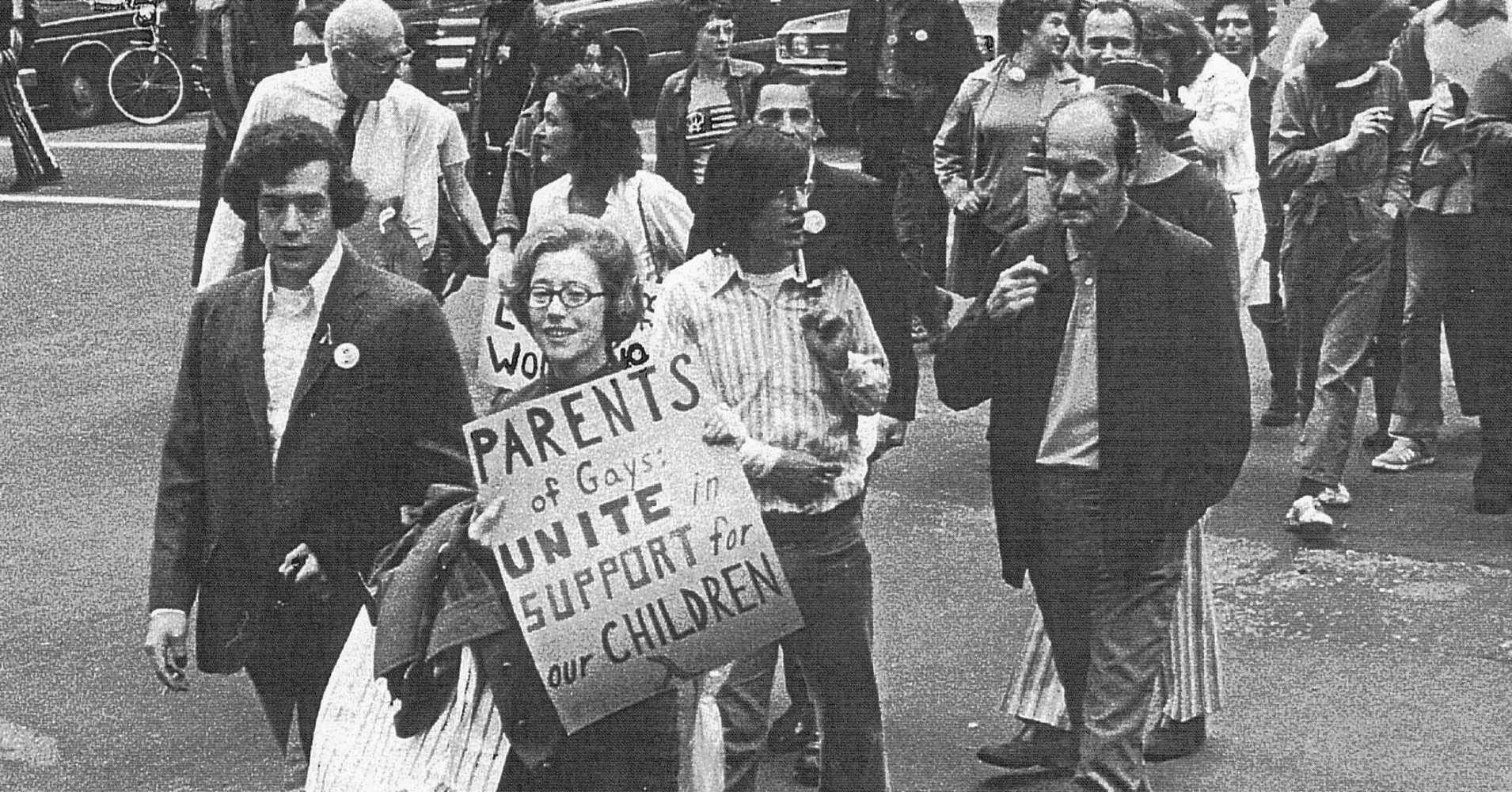[ad_1]
On a seemingly normal day in 1972, Jeanne Manford and her son Morty walked together in what would eventually be known as the Christopher Street Liberation Day March in New York City. This event is now called “Pride” across the world.
Jeanne Manford chose to march that particular day as a bold and public display of support for her gay son, who had been harassed and beaten by his peers at school. Their relatively short journey across the cobblestone streets ― with Jeanne carrying a large, homemade sign that said, “Parents of Gays: Unite in Support for Our Children” ― would unwittingly change the course of history for LGBTQ families worldwide.
During the gathering, gay and lesbian marchers approached Jeanne, who worked as a Queens schoolteacher, requesting help in talking to their own parents about their LGBTQ identities. Understanding the urgency of the matter, Morty, Jeanne and her husband, Jules Manford, made the decision to start a support group for parents and friends of LGBTQ people.
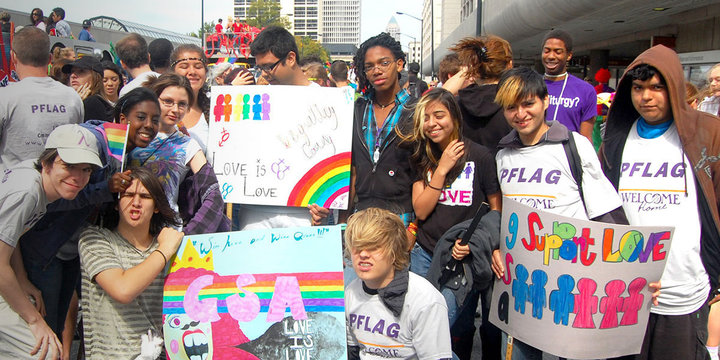
Courtesy of PFLAG
The organization’s first formal meeting took place on March 11, 1973, at the Metropolitan-Duane Methodist Church in Greenwich Village ― now known as the Church of the Village. Approximately 20 people attended.
Word about Jeanne’s support group began to spread, and meetings soon popped up in cities across America. The supportive huddles became safe spaces for parents of LGBTQ children to ask questions, voice concerns, find community and receive or offer support when necessary. The absence of retaliation, backlash or pushback made it possible for parents and caregivers to connect in a way that seemed impossible before this time.
In a 1989 interview with “Making Gay History” host Eric Marcus, Morty said, “It was not so much what my mother said but that she said it. I remember her many times saying, ‘There’s nothing wrong with your son being gay or your daughter being lesbian.’ … people had never heard this before and to hear it from another parent, a peer. They expected to spend the phone conversation in tears with someone at the other end saying, ‘Now, now, dearie,’ but that’s not what they got. I think the effect was to make them stop a minute.”
The group would later come to be known as PFLAG, which was originally an acronym for “Parents, Families, and Friends of Lesbians and Gays,” but it now stands as the organization’s name, to reflect its evolution over the course of four decades. In a resounding effort to invite all people, including a long history of inclusion of those of bisexual and transgender experience, the organization “envisions a world where diversity is celebrated and all people are respected, valued, and affirmed inclusive of their sexual orientation, gender identity, and gender expression.”
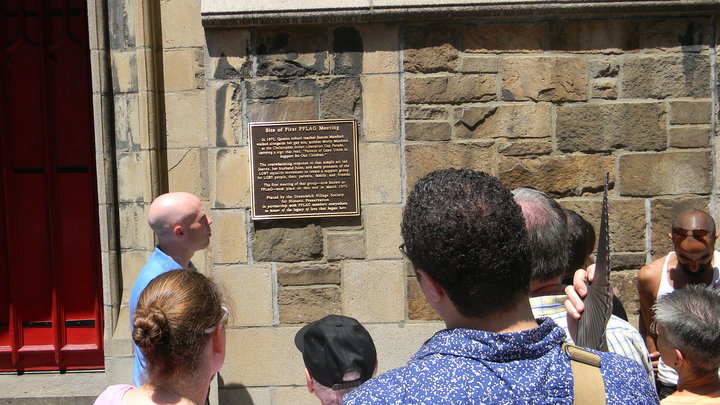
Courtesy of PFLAG
A transgender teenager, Whitney, knows firsthand the importance of the modern-day mission of PFLAG.
Meet Whitney
At the time of Whitney’s birth, she was given a male name that fit the confines of her familial makeup. The name was chosen in an effort to honor both sets of grandparents. However, it never seemed to fit.
Whitney’s parents, Catherine and John Hyde, noticed that their child preferred to dress in pink and wear “sparkly and feminine” clothing instead of what many people would consider gender-specific clothing, in this case, boys’ clothing.
At the age of 4, Whitney told her parents that something had gone wrong in Catherine’s belly because he was supposed to have been a girl at birth.
“This made no sense to us. We had no idea what it meant. None of our friends’ children were saying things like that,” Catherine told HuffPost.
The Hydes began to “actively encourage masculine behavior and actively discourage feminine behavior” in Whitney, they said. “It seemed to us the reasonable and right thing to do… and we did it with the full support of a psychologist.”
These choices, however, worked against Whitney’s nature, and when she turned 6, she admitted to her parents that she felt suicidal.
PFLAG became an incredible resource for the Hydes ― to lean on and further understand their daughter’s transition.
“PFLAG was the scaffolding to hold me up and my family together while we went on an amazing journey to understand, accept and eventually celebrate our trans child,” Catherine told HuffPost. “My child taught me unconditional love; I would not have been open to learning that had I not had PFLAG to support me. I am a far, far kinder and more loving and accepting person.”
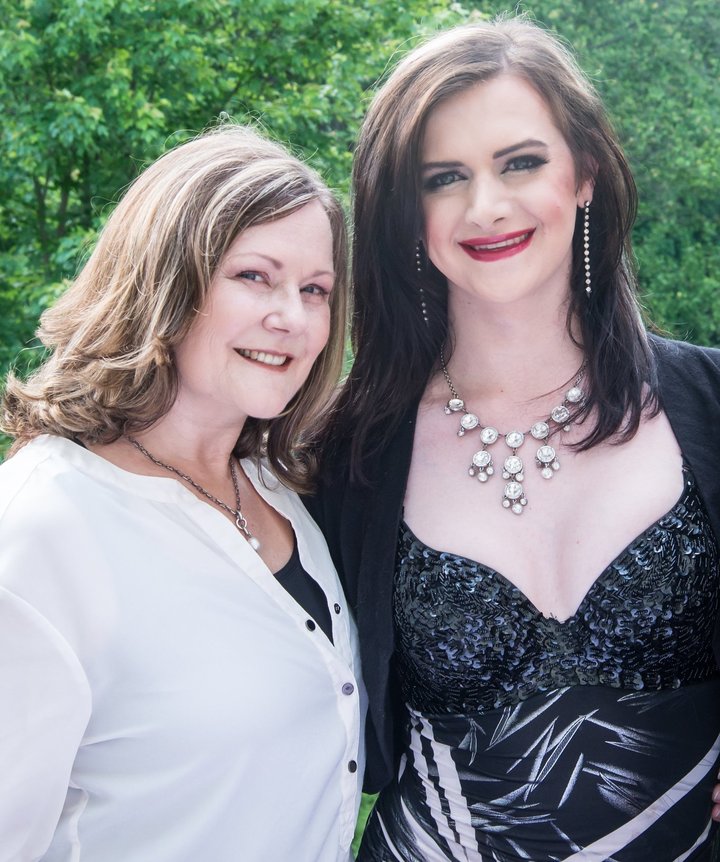
Catherine Hyde
Catherine now serves as the trans coordinator for her local PFLAG chapter and is a member of the organization’s national board of directors. In 2013, she served a term on the Human Rights Commission in Howard County, Maryland, and then, in 2014, she launched Gender Conference East, a two-day East Coast gathering for families with trans and, as the program describes, “gender-creative children,” and the professionals who serve them.
As for Whitney’s trajectory, she is now the youngest member of the regular cast at Perry’s Drag Brunch in the Adams Morgan neighborhood of Washington, D.C. Her stage name is Whitney Gucci Goo, and she is pursuing drag full time with the support of her parents.
Celebration ― And The Future
PFLAG Board President Jean Hodges hopes the organization will continue to include all family dynamics.
“As we move into the next 45 years of PFLAG, we will keep expanding the diversity of our membership, growing our chapters and their capacity to work in a variety of communities,” Hodges told HuffPost. “And, no matter what, we will always support LGBTQ people and their families in their journeys to acceptance and love.”
Families like the Hydes, whose lives were directly affected by the support of their PFLAG chapter when they needed it most, are at the heart of PFLAG’s mission.
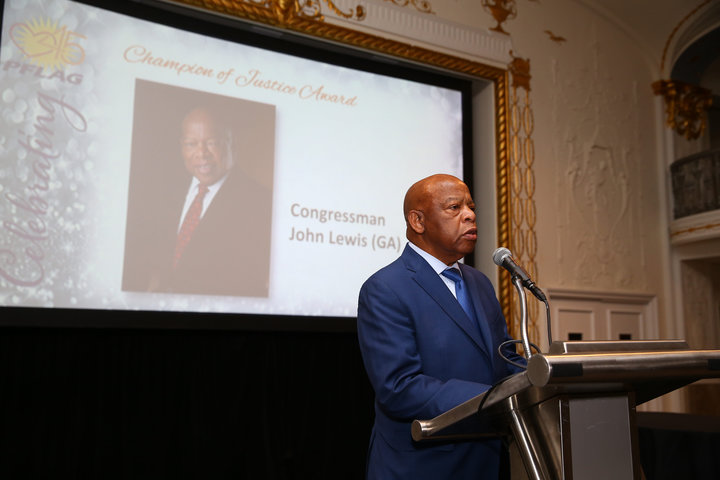
Courtesy of PFLAG
As an organization, PFLAG is also committed to racial justice and community outreach to people of color. Kelly A. Brooks-Hailey, 35, is the coordinator of diversity and inclusion for PFLAG’s chapter in Howard County, Maryland, and serves on the steering committee and strategic planning committee.
She proudly attended her first organizational meeting but noticed right away the lack of diversity.
“As I looked around the table, I realized no one there looked like me,” she said. “Everyone was white.”
Brooks-Hailey wants to ensure that all families with LGBTQ+ children and loved ones feel included in the organization’s programming.
“Since then, through PFLAG, I speak to different groups about efforts to expand diversity and inclusion within their local chapters and about ways to make sure communities of color know that PFLAG is here for them,” she said.
Now there are about 400 PFLAG chapters in the U.S., with more than 200,000 supporters, from across generations and socioeconomic levels, building a unified global LGBTQ and allied community. Except for North Dakota (a lack PFLAG hopes to fill by year’s end), there are chapters in 49 states, the District of Columbia, Puerto Rico and a U.S. military base in Germany.
PFLAG looks toward its 46th year determined to keep reaching out to support people of color and to speak out against continued injustice across intersectional identities.
“PFLAG and its vast chapter network continue to be much-needed resources for LGBTQ persons and their families. In the last year alone, we had 123 inquiries to start new chapters from all regions of the country, including areas that are often assumed to be conservative,” Hodges said.
“For PFLAGers, sharing our stories and meeting people where they are, to have the sometimes difficult conversations, create the path to family acceptance and ally activation. And supporting and educating people ― all people, across all communities ― who struggle with accepting their own or others’ sexual orientation and gender identity and expression, and advocating for justice, continue to be the mission of PFLAG.”
#TheFutureIsQueer is HuffPost’s monthlong celebration of queerness, not just as an identity but as action in the world. Find all of our Pride Month coverage here.
[ad_2]
Source link

